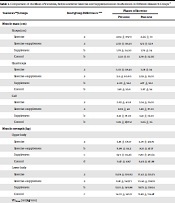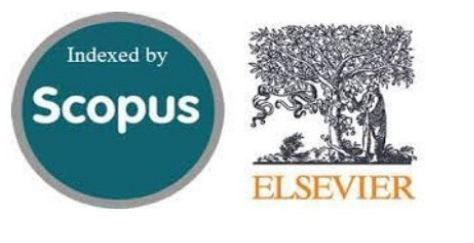The Effect of Vitamin D Supplementation After Resistance Training on Physiological Characteristics in Futsal Players with Vitamin D Deficiency
Keywords:
Cardiorespiratory Fitness, Muscle Strength, Resistance Training, Vitamin DAbstract
Background: Recent research indicates the prevalence of vitamin D deficiency worldwide and is conflicting evidence as to whether vitamin D supplementation actually improves physical performance. Objectives: The purpose of this study was to investigate the effect of vitamin D supplementation on improving muscle strength, muscle volume and cardiorespiratory fitness through resistance training in male athletes with vitamin D deficiency. Methods: This study was conducted with pre-test and post-test series design and quasi-experimental method. The population included 36 male futsal players with vitamin D deficiency that were randomly divided into four groups of nine: exercise (EX), exercise-supplement (EXS), supplement (SUP) and control (CON). SUP and EXS groups received vitamin D3 (50,000 intramuscular injections) every two weeks for 8 weeks and performed three resistance training (RT) sessions per week at a rate of 75% 1RM. Before and after intervention, blood sampling were drawn and measurements performed for 1RM, muscle volume (cm2), and VO2max by standard Bruce test. Correlated t-test was used to compare pre-test and post-test results and to measure the differences between groups, one-way analysis of variance and LSD post hoc test were used using SPSS statistical software. Results: Muscle volume increased significantly (P-value = 0.001) only in EX and EXS groups. Cardio-respiratory fitness did not change significantly in any of the groups (P > 0.05). There were no significant differences between EXS and SUP groups for any of the measured variables (P ≥ 0.05). Conclusions: It seems that simultaneous application of vitamin D supplementation and resistance training for 8 weeks does not have a significant effect on the improvement of the strength and endurance of futsal players.
Downloads








